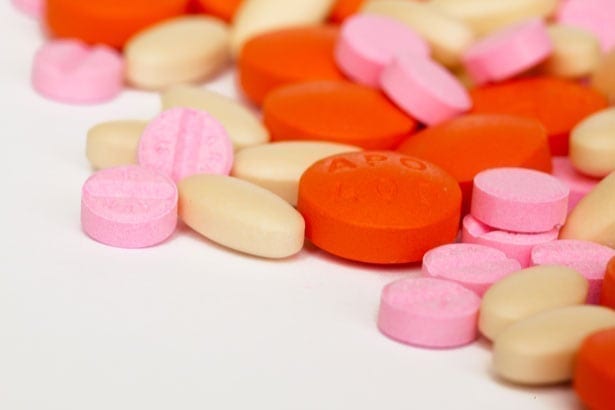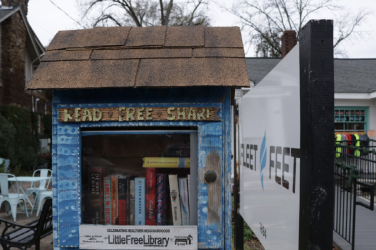An alarm sounds.
It’s an iPhone ringing out its hourly tune.
An employee puts on their favorite song and everyone starts to clean; wiping down cash registers, credit card machines, pens, phones and anything else in sight.
This is a frequent occurrence for Johnathan Marquess, a pharmacist who owns Horton’s Drug Store in Athens, Georgia. Marquess, who also works at pharmacies in Woodstock and Marietta, has tried to stay positive as his practices adapt to the coronavirus pandemic, and he’s not the only pharmacy taking precautions.
The outbreak of COVID-19 in the United States has had many Americans thinking about their overall health. While some healthcare professionals have closed up shop or introduced limited hours, pharmacies are still functioning in close to full force. In Athens, pharmacies are introducing new policies to help protect their patrons from unnecessary illness while still providing access to medications and adapting to the needs of concerned customers.
‘Curbside Counseling’
Despite some common perceptions, pharmacists aren’t just found in local drug stores. They also serve in hospitals alongside other medical personnel currently fighting COVID-19.
“They’re everywhere. They’re not just in this retail setting,” said Timothy Brown, the director of interprofessional education at UGA’s College of Pharmacy. “They’re pervasive. They’re in every sector of healthcare, and each one is doing something unique to that particular position, but they’re right there on the front line.”
While hospital pharmacists have been trying to determine the most efficient drugs that will help treat conditions in both COVID-19 and non-COVID 19 patients, community pharmacists have been participating in what Brown calls “curbside counseling.”
Both Marquess and Kevin Florence of ADD Drug Store in Athens have created curbside efforts for customers to get their medications without leaving their cars, limiting unnecessary contact and exposure.
Offering this curbside service means pharmacy employees find themselves running outside up to 30 times a day. This, in addition to constant cleaning and sanitation, amounts to a tiresome workday.
“I want to give a big shout out to all pharmacists, to all pharmacy technicians, to all staff at the pharmacy. We are essential employees,” Marquess said. “These folks have shown up every day, have put on a smile. They have cared about this community and I’ve been so proud of our employees.”
Steady Supply Stocks
Although most of the pharmaceutical ingredients used in the United States are outsourced from foreign nations like China and India, the coronavirus outbreak has not largely affected pharmaceutical supplies domestically.
“Are there smaller quantities coming in? Yes, but that doesn’t mean there’s a shortage,” Brown said. “It just means that more people are trying to spread out what we have to all the regions.”
The best practice for those with prescriptions is to be aware of the amount of medication they have left and leave ample time to contact their pharmacist about getting a refill. These communication channels have become vital to providing care during COVID-19, but more online and telephone traffic means longer response and processing times are needed.
“There’s still access to medications, [people] should not stop any of their current medications that they’re already taking,” Brown said. “If they are having issues getting refills, or getting through to their physician’s office, then they should talk to their pharmacist.”









Show Comments (0)